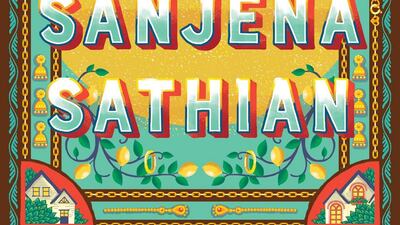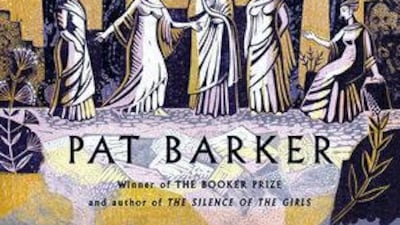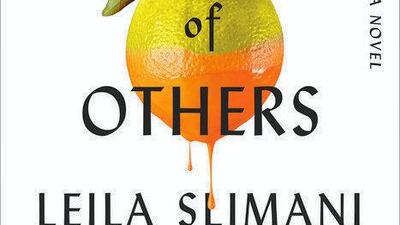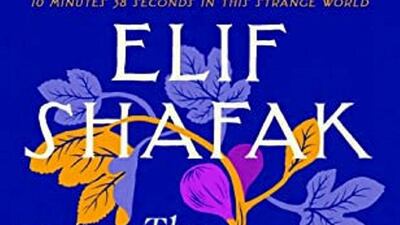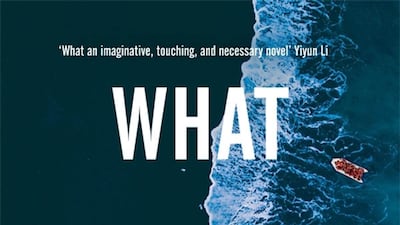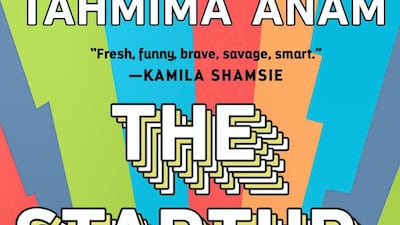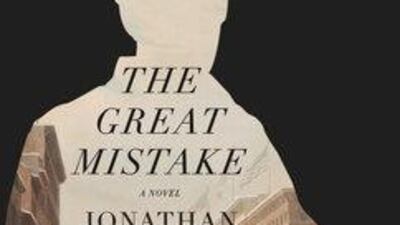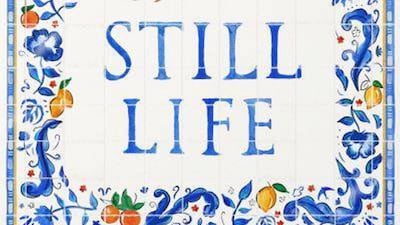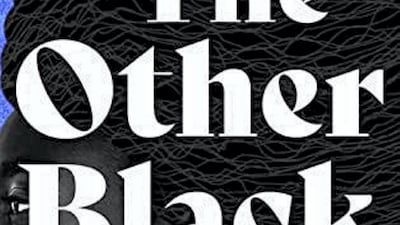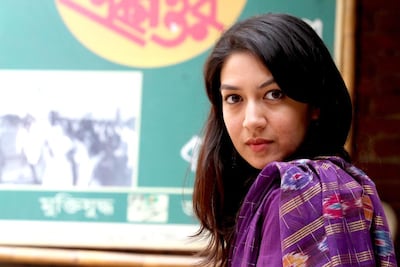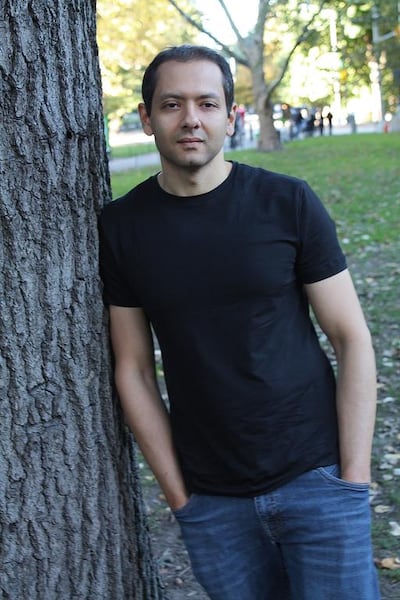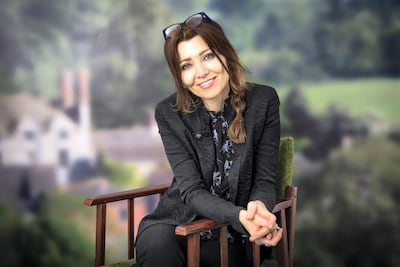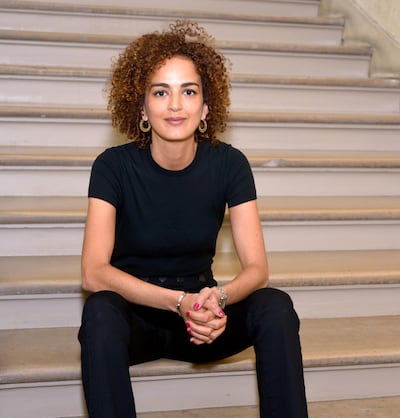Whether you're avoiding the hot weather by lounging at home, or escaping for a beach day, an enthralling read should be close at hand.
Here, The National has rounded up some of the best new books, out now or coming soon, to help you while away those summer days.
'Gold Diggers' by Sanjena Sathian
Published to widespread acclaim this spring, Sathian's debut is a wonderful coming-of-age novel set in an Indian immigrant community outside Atlanta in the US. It also has a fantastical element – the narrator Neil's friend Anita has a secret; she and her mother brew an ancient potion from stolen gold that can harness the ambition of the jewellery's original owner. Anita needs a boost to get into Harvard University, but Neil needs a whole lot more to achieve what he wants … but their scheming ends in a tragedy that ripples across the community. Sathian's book is great fun.
'The Other Black Girl' by Zakiya Dalila Harris
It was one of our tips for the year in January, and this effortlessly readable combination of satire, thriller and social commentary is clearly going to be the talk of the summer, too.
Nella works for a New York publishing house, and when Wagner Books hires Hazel-May, Nella is encouraged not only by the fact she will no longer be the only black woman in this troubling office, but also that she will now be able to speak up about its racial politics. However, not all is quite what it seems. Nella starts to receive anonymous notes telling her to leave the company and suspects that her new colleague might not be the ally she expected her to be. Unsurprisingly in development for a major television series, Harris's The Other Black Girl is both sinister and spirited.
'Still Life' by Sarah Winman
This summer's emotive, generous holiday read has to be Winman's hymn to the power of love in its many forms. Still Life begins in Italy towards the end of the Second World War, when a young English soldier, Ulysses, comes across a sexagenarian art historian (and possible a spy) trying to save paintings from the rubble of war. Their encounter changes the course of the soldier's life over the next four decades as Winman fashions an expansive story taking in Tuscany, Florence and the East End of London. One of those lovely novels to relax into and enjoy reading.
'The Great Mistake' by Jonathan Lee (out on Tuesday)
The Great American Novel has become something of a tired literary trope, so it's interesting that it's taken an English writer to reinvigorate the genre so comprehensively. Taking inspiration from the real-life "father of Greater New York" Andrew Haswell Green – a driving force behind Central Park and the Metropolitan Museum of Art – Lee's story begins with Green's death in 1903 and travels back into his past, trying to find a reason for a seemingly motiveless murder. In that sense, it's both a mystery novel and a social history of New York and America, with nods to renowned American authors John Steinbeck of The Grapes of Wrath and F Scott Fitzgerald of The Great Gatsby.
'The Startup Wife' by Tahmima Anam (July)
Something of a companion piece to Harris's workplace novel, Bangladeshi-American computer scientist Asha builds a social networking app with her old high-school crush Cyrus, but soon finds that their impossibly successful start-up is actually hugely limiting. It is a combination of blackly comic romcom, satire of the tech world and smart but cautionary exploration of how ambition and feminism both clash and co-exist. Anam knows this world intimately – she's a start-up wife herself – and it's great to see her broaden her scope from her previous excellent novels focusing more obviously on Bangladesh.
'What Strange Paradise' by Omar El Akkad (July)
We loved El Akkad's breakthrough 2017 novel American War – its depiction of a South Carolina with a wall around it to stop a ruinous virus from spreading now seems rather more urgent than before. His follow-up moves away from the US to an unnamed small island, where refugees from a doomed ship wash up on the shore. Only a nine-year-old Syrian boy called Amir survives and he's looked after by teenage girl Vanna. Despite not speaking a common language, they find hope amid the despair of a hostile world. Where American War was a dystopian vision of the future, What Strange Paradise is a moving account of the potential for good amid the rubble of many humanitarian crises.
'A Slow Fire Burning' by Paula Hawkins (August)
Hawkins needs no introduction as the author of the bestselling The Girl on the Train, so if every summer needs a proper page-turning psychological thriller, then her new novel A Slow Fire Burning should be the one to pack. Swapping the train tracks for the canal, Laura is the suspect in a murder that takes place on a London boat, but there are plot twists aplenty as we sift through the backstories of engaging characters with secrets to keep, vendettas to maintain and emotional baggage carried throughout their lives. Expect Hawkins's trademark intricate plotting – as she has said herself: "No tragedy happens in isolation."
'The Island of Missing Trees' by Elif Shafak (August)
A new book from the author of The Forty Rules of Love is always a treat, and this split narrative from the Booker-shortlisted British-Turkish novelist is hugely promising. It begins in 1974 in the divided island of Cyprus, where Greek-Christian protagonist Kostas and Turkish-Muslim character Defne secretly meet in a vibrant tavern that allows them to find refuge from the troubles of the world. That is until war breaks out and the teenagers disappear. Many years later in North London, 16-year-old Ada is desperate to find out more about the island on which her parents were born, sifting through years of secrets in this enveloping exploration of identity, love and trauma.
'The Women of Troy' by Pat Barker (August)
Summer reading is all about escapism, and the world of gripping, violent, romantic Greek myth is fiction at its transporting best. Barker found a vibrant new and feminist take on Homer's The Iliad in The Silence of the Girls, and she continues the story in The Women of Troy. We pick up the tale with Troy fallen to the Greeks, but trapped by the gods in the shadow of the city they destroyed. The heroine of Barker's first instalment, Briseis, finds allegiances where she can with the other captive Trojan women in this unruly and tumultuous world, as Barker celebrates the survival instincts and resilience of her captivating characters.
'The Country of Others' by Leila Slimani (August)
The first part of a new trilogy from the award-winning French-Moroccan writer is something of a personal project. In 1944, her grandmother fell in love with a Moroccan soldier fighting for the French during the Second World War. After the war, she moved to Africa to be with him, and The Country of Others is the fictionalised result, a classic fish-out-of-water tale as Mathilde struggles with the heat, loneliness, her identity and prejudice – but still survives. "She spoke perfect Arabic and Berber, walked barefoot in the countryside and, when she was buried, hundreds of ordinary people turned out to wave goodbye," said Slimani, just before this exquisitely rich novel was published in French last year.
